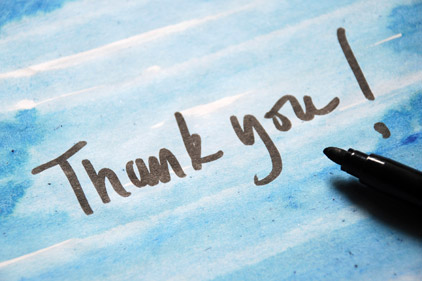I remember being amused by the union steward and the HR director trading jabs within their predictable arguments as we worked through many of the concepts of safety cultures. When we discussed the central concept of reinforcement I was surprised to see both the HR and Union guys team up in disagreement.
Working safely doesn’t deserve applause
I was describing that the corrective feedback central to many behavioral safety programs only gets workforces halfway to their safety goals. What is badly needed is delivering reinforcement for a task safely done. And it doesn’t have to be elaborate. A simple “Thank you…I noticed that you did this and it made us a safer workforce” is powerful.
But the union steward disagreed. He said that doing the job safely is part of the job, part of the expectations that everyone has for themselves and others. “You don’t tell someone “thank you” for something they should be doing in the first place.”
Then the HR director pointed to a company poster on the wall. “See we go by the motto, ‘Safety is YOUR first job’.” He went on to agree with the steward that there is no need to thank anyone… because it’s already their job.
But working safely requires reinforcement
Then I went on my “Safety is not a job”… rant. It goes something like this:
When you come to work, you are not getting paid for safety. You’re getting paid for your quality output. Instead, safety is what you do for yourself and each other because you’re human. Because you’re a human (which may be an assumption in some cases), safety is valuable to you all by itself, not because you’re paid for it.
Safety is NOT your job. It’s what you do because you’re human.
Think about it, safe behaviors are typically more cumbersome, uncomfortable and less convenient than the short-cuts that create risk… AND, those very short-cuts may be linked to successful job performance because you do your tasks quicker with less cost. To counteract this, safe behaviors must be reinforced abundantly by other means, through your supervision, peers, your family, and your own appreciation of its value. No money is involved.
Finger-pointing
Moreover, paying for safety as part of everyone’s job has many unfortunate ‘POINTS’:
People POINT at each other after an injury: “Who didn’t do their job?” It’s too easy to label someone “at fault”; to convict someone as “not doing their job” at the expense of real solutions. In effect, you are teaching “be safe to avoid punishment.” This throws your culture into a negative reinforcement spiral where employees feel they will be blamed if something goes wrong. This causes them to freeze and wait for clear instructions on everything safety (do all your supervisors know exactly how to do the job safely and will they provide clear instructions?). You lose the initiative employees instinctively have, as humans, to make their workplace safer… which brings me to my second point (and third)…
Let safety deal with it
Everyone POINTS at the safety manager as the person “in charge” of safety, the police-officer who enforces safety requirements and is responsible for all safety processes. “Big ‘S’ Safety is the safety manager’s job”…when in fact it is everyone’s bond, to themselves, coworkers and family. The Safety Manager’s job is to facilitate the actions of others to be safe.
Another labor-management tangle
Unions and management get into the age-old practice of POINTING at each other. Management practices such as signing standard operating procedures attempt to assign legal responsibility for the behaviors regarding safe performance while some unions actively dismiss behavior-based safety programs with the mistaken assumption that it blames the workers. Get beyond this need to point…see the reality. If there is anything unions and management could and should succeed together on it is safety. Linking “safety” and “job” blinds unions and management to shared opportunities reinforcing safe behaviors.
Loss of power
And in the end, no one gets positively reinforced for their safe behaviors… because it their job. This is the most unfortunate thing… you know why? Because reinforcement is the single most powerful way to get someone to perform their job safely. Period. And, as an added bonus, it is also the cheapest.


